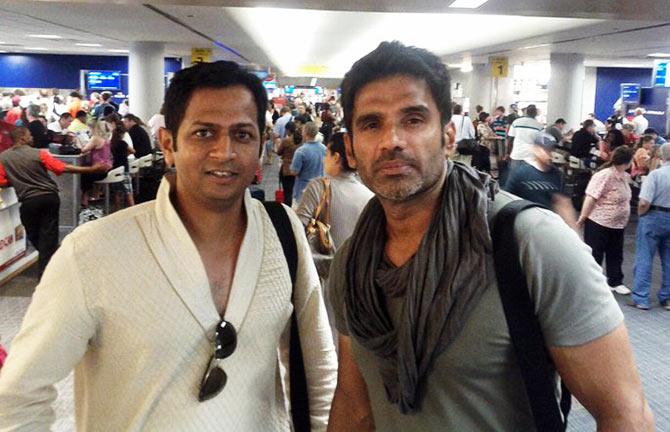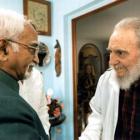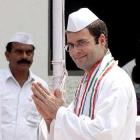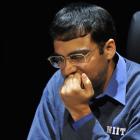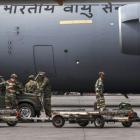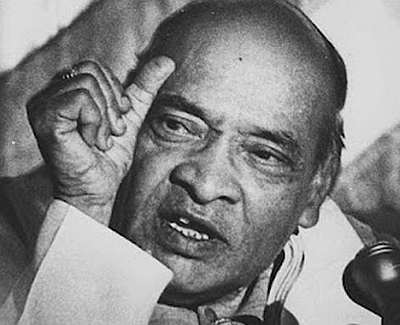Dear Colleagues,
I
was asked by the Chancellor to make some concluding remarks at the end
of the first session of the Chancellor's Council on April 29, 2015. I
did not have a text, but I give beow a gist of what I said. Your
comments are welcome.
Sincerely,
TPS
Concluding
Remarks by former Ambassador T.P.Sreenivasan, VC, KSHEC at the First Meeting of
the Chancellor’s Council on March 29, 2015.
Distinguished
Chancellor, Esteemed Pro-Chancellor and Members of the Chancellor’s Council,
Allow
me to express my sense of satisfaction over the formation of the Chancellor’s
Council. Some time ago, a former Chancellor, Shri.Nikhil Kumar, had asked me
for a note on the role of the Chancellor in our system and I had suggested the
formation of an “Eminent Persons Group”, including Vice-Chancellors and other
educationists to coordinate the work of the Universities and to ensure
implementation of decisions by the UGC, the Government and others. Since the
Higher Education Council had only an advisory role, there was need for another
body, I had said. The formation of the Chancellor’s Council meets an important functional
requirement.
I
shall not go into the working of the Higher Education Council here. I have
circulated a short “Agenda 2015”, which outlines what we have been doing. The
details, including all our reports, are on our website also.
In
the presentations we have heard, each Vice-Chancellor has described what is
being done to enhance quality in the Universities. But I am of the view that
our education cannot get better unless there is comprehensive reform.
Fundamental changes are necessary in what we teach and how we teach it. We need
a new generation of higher education, a “Higher Education 2.0”. We, therefore,
identified six areas, which demanded immediate attention—infrastructure,
teachers’ training, use of technology, autonomy, research, and
internationalization. We have formed experts group in each of these areas and
submitted more than ten reports. We are in the final stages of submitting ten
more reports, which, if implemented, would transform the higher education
scene. The work of the Universities should be within this framework, instead of
each of them reinventing the wheel.
Only
two of our reports have been fully implemented, ie Reform of the Semester System
and establishment of autonomous colleges. Two of our other recommendations, the
creation of an Assessment Council (KSAAC) and a Faculty Academy, have been
accepted, but the process has not been completed. The Government has to pick
and choose from the broad menu we have provided, depending on its priorities
and availability of resources. The Council is ahead of the Government as we are
dreamers and planners.
As
the implementing agency of RUSA, the Council has been engaged in negotiations
with MHRD for more than a year. In keeping with the grand vision of RUSA to
transform higher education, we submitted several innovative proposals, covering
the whole spectrum of reforms. But the MHRD kept changing the criteria and
qualifications for allocation of funds. We are greatly disappointed that the
allocation made for the entire Plan Period for Kerala is only Rs. 110 crores
and that too entirely for infrastructure. The decision to include only
established institutions with NAAC accreditation has ruled out all new and
innovative institutions. In other words, the hopes raised by RUSA to bring
about a major change have been belied. Moreover, the assurance that planning,
funding and monitoring will be entrusted to an academic body has been derailed.
Restructuring and empowering the KSHEC to handle RUSA are pending, but the
allocated funds will be administered in consultation with the concerned
institutions. Some additional funds may be made available for aided colleges
during the Plan period.
Skills
development has become very fashionable and several Departments and agencies
have begun programmes with the funding available from several sources. But
there is no coordination among them and the skills developed are of a marginal
nature. The National Skills Qualification Framework (NSQF) is not in place, as
far as I am aware, though some discussions have taken place, notably at the
Govt. Engg College, Trivandrum. The initiative of the Chancellor’s Council in
this regard will hopefully lead to the setting up of the NSQF.
As for
Choice Based Credit system, the implementation of the Hrdayakumari Committee is
still incomplete. The UGC Guidelines, I believe, are not consistent with the
system we have put in place. I would suggest that we discuss the situation in
Kerala with the UGC before we implement the new Guidelines.
We
have heard reports about achieving the goal of Tobacco Free Campus. I would
submit that today there are greater dangers in the campuses such as alcohol,
drugs and sexual harassment. At a workshop held by KSHEC recently, officers
responsible for gender issues told us horror stories of the state of affairs in
the campuses. Of particular relevance are the charges of exploitation of
research scholars by their guides. KSHEC has just set up a Committee under
Prof. Meenakshi Gopinath, who has done great work at the national level to
advise the Government on dealing with gender justice issues.
KSHEC
has been in the forefront of propagating MOOCS. Some awareness has been
created, but the larger academic community is still not aware of the immense
potentials of MOOCS. India is the second largest user of MOOCS, but the drop
out rate is very high. MOOCS are essential to bridge the gap between the
knowledge of our teachers and the current knowledge out there in various subjects.
I would request the Vice-Chancellors to integrate MOOCS in the curricula and
enable students to earn credits. Local content will have to be created for the
Indian platform, SWAYAM, to create our own MOOCS.
KSHEC
has a Committee working under Prof.Gangan Pratap to strengthen research in our
Universities. It is lack of research that keeps our Universities away from
world class. We produce PhDs, but plagiarism and fake theses are not the only
problems. Our researchers merely gather information to support a thesis. No
product or process is initiated in most cases and patents are few and far
between. I believe that research should be revamped, if we are to attain
excellence.
As
for the agenda item on the Chancellor’s Award, the proposals we have heard, except
two from the VCs of Health and Technical Universities, involve a NAAC like
study of the Universities. I would go with the suggestion that each University
should submit at the end of each year a single achievement of the University,
which is innovative and game changing. The Committee could choose the best
among them and give the award money to enable the University to proceed further
in the same area of accomplishment. Such an award will promote reform and path
breaking initiatives.
One
last point I would like to make, with due respect to all the VCS, who made
power point presentations, is that we should omit such presentations. The power
point presentations are out of the Boardrooms in many countries. Instead of
discussing an issue from a personal perspective, we tend to project existing
data, which are available from the websites. I would request the Chancellor to
consider this suggestion also.
This
First Session of the Chancellor’s Council has been extremely rewarding and I
would like to thank the Hon.Chancellor for his historic initiative. The
presence of the Pro-Chancellor and his words of wisdom have added to the value
of this session.
Thank
you.







